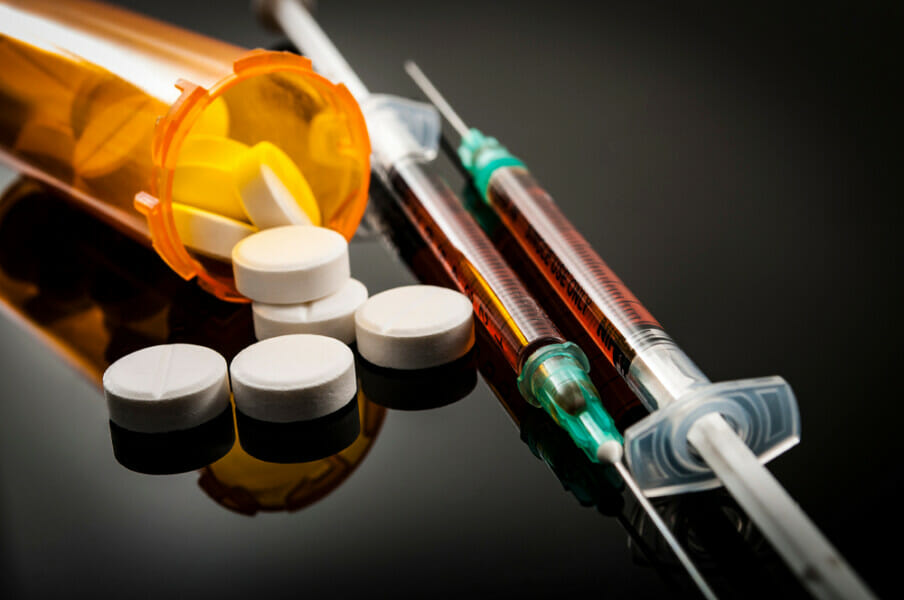Symptoms, Characteristics, and All About Methadone Addiction You Should Know
In the case of a methadone overdose, it can disrupt the functioning of the cardiovascular system, suppress breathing, cause impaired consciousness, pulmonary edema, acute renal failure, and in severe instances lead to a coma.
Some individuals incorrectly perceive this synthetic opiate as harmless and safe. Consequently, they may initially use it to experience a high without experiencing immediate negative effects on the body. In some situations, addicts may start using methadone in place of other prescribed medications to tackle their drug addiction issues solo. Unfortunately, this can lead to the development of methadone addiction.
As the addiction progresses, individuals may seek help by looking up phrases like “methadone clinic near me.” Since methadone provides less euphoria, addicts may combine it with other psychoactive substances, resulting in a poly-addiction.
Prolonged use of methadone can result in an addiction that is challenging for the individual to overcome independently. Therefore, those with a dependency on this substance require professional assistance from a specialist, such as a narcologist, who can prescribe a safe and effective treatment plan.
Development of Methadone Addiction
According to SAMHSA, methadone helps reduce opioid cravings and withdrawal symptoms while blocking or dulling their effects. This synthetic opiate alters how the nervous system and brain respond to pain, providing relief. Methadone’s effects are slower compared to potent painkillers like morphine.
Aside from being used for heroin addiction treatment, physicians may prescribe methadone to patients experiencing significant pain due to surgeries, chronic illnesses, or injuries. Methadone blocks the euphoric effects of substances like heroin, codeine, morphine, oxycodone, and hydrocodone while offering a similar sensation. Thus, some view it as part of a replacement therapy. However, methadone is a component of an addiction treatment strategy and not a cure.
Initial methadone use may not result in significant euphoria but can offer feelings of well-being, calmness, and self-assurance. It stabilizes the emotional state, fosters a positive mood, maintains cognitive clarity, and enhances reaction speed, encouraging individuals to continue its use.
Over time, the initial positive effects of the drug diminish, leading to psychological discomfort and self-doubt. This prompts users to increase their daily methadone dosage and frequency of intake.
After around 2-3 weeks of regular use, the addiction sets in, and individuals may feel they no longer require the assistance of a methadone clinic. Unfortunately, this can escalate the problem, causing the addict to switch to intravenous injections from oral methadone. They may become irritable, restless, less active, engage in multiple tasks without completing them, and struggle with persistent tardiness.
Signs of Methadone Addiction
After approximately a year of using methadone, individuals may no longer enjoy its consumption and instead experience constant feelings of panic and fear, alongside a growing desire for its effects. Consequently, methadone addicts may turn to alcohol, sleeping pills, sedatives, and other substances, exacerbating their situation.
However, existing mental and physical dependencies can prevent individuals from abstaining from methadone use. In some cases, loved ones of methadone addicts may seek help by searching for phrases like “methadone clinics near me.” Without professional intervention, addicts may face fatal outcomes such as AIDS, overdose, sudden respiratory arrest, hepatitis, or poisoning from toxic substances.
Methadone Withdrawal Signs
Research suggests that short-acting opioids like heroin and long-acting opioids such as methadone produce nearly identical withdrawal symptoms but with varying onset durations. Discontinuing methadone use may lead to the following withdrawal symptoms:
- Tearing up (lachrymation)
- Nausea and vomiting
- Confusion of consciousness
- Difficulty breathing
- Severe muscle and joint pain
- Increased aggression or aggression
- Reduced appetite
- Onset of psychosis
- Nightmares and insomnia
- Heightened irritability
- Experiencing hallucinations
If a loved one exhibits these symptoms, you may consider looking for a “Subutex clinic near me” online. Only a specialist can effectively alleviate these withdrawal symptoms, enhance the well-being of your loved one, and recommend suitable treatment or therapy for the addict. Failure to seek professional help can lead to unfortunate and unpredictable outcomes.
Treatment for Methadone Addiction
Medical professionals manage methadone addiction in narcological hospitals through rehabilitative measures and round-the-clock psychotherapeutic support. Addicts receive continuous monitoring and undergo traditional detoxification to alleviate withdrawal symptoms and enhance their overall condition.
Severe addicts may undergo ultra-rapid opioid detoxification under general anesthesia, supplemented with medication to support the lungs, heart, nervous system, and kidneys. Intravenous infusions of essential nutrients, saline solutions, sedatives, and nootropics may also be required. Antipsychotic medications can aid in managing psychosis symptoms.
Patients may partake in group or individual psychotherapy sessions to equip them with skills to combat addiction and resist temptations. Methadone addiction treatment may last for over six months, with individuals undergoing a rehabilitation program to learn to lead a drug-free life and reintegrate into society.

















